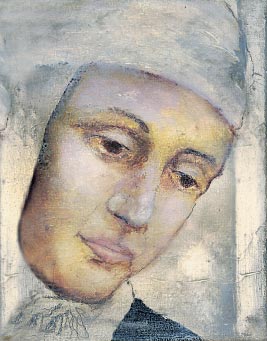Three things will be examined: Prophecy, Private Revelation (visions), and Bl. Anne Catherine Emmerich:
Prophecy:
In Catholic Prophecies: Do They Mirror, Highlight, or Contradict Biblical Prophecies?, Mr. Bob Thiel, Ph.D., of "Continuing Church of God", therefore a Non-Catholic quotes:
Benedict XIV (Heroic Virtue, III,144,150) says: "The recipients of
prophecy may be angels, devils, men, women, children, heathens, or
gentiles; nor is it necessary that a man should be gifted with any
particular disposition in order to receive the light of prophecy
provided his intellect and senses be adapted for making manifest the
things which God reveals to him. Though moral goodness is most
profitable to a prophet, yet it is not necessary in order to obtain
the gift of prophecy." (Devine, Arthur. Transcribed by Marie Jutras.
Prophecy. The Catholic Encyclopedia, Volume XII. Published 1911. New
York: Robert Appleton Company. Nihil Obstat, June 1, 1911. Remy
Lafort, S.T.D., Censor. Imprimatur. +John Cardinal Farley, Archbishop
of New York).
One does not tell/advise God who he should choose to talk to/reveal visions to. Examples from scripture: Balaam, Pharaoh, Babylonian Kings, etc.
The test of a prophet is set out by God in Deuteronomy 18:22 (RSVCE)
22 when a prophet speaks in the name of the Lord, if the word does not
come to pass or come true, that is a word which the Lord has not
spoken; the prophet has spoken it presumptuously, you need not be
afraid of him.
Private Revelation (visions):
cf. Catechism of the Catholic Church 66 & 67: Since the advent of Christ, God has spoke definitively through His Son, and therefore after the death of the last Apostle, there is no new public Divine Revelation to be expected for our salvation. On 'private revelation:'.
67 Throughout the ages, there have been so-called "private"
revelations, some of which have been recognized by the authority of
the Church. They do not belong, however, to the deposit of faith. It
is not their role to improve or complete Christ's definitive
Revelation, but to help live more fully by it in a certain period of
history. Guided by the Magisterium of the Church, the sensus fidelium
knows how to discern and welcome in these revelations whatever
constitutes an authentic call of Christ or his saints to the Church.
ANNA KATHARINA EMMERICK (1774-1824):

In his homily on Bl. Anna Katharina Emmerick, Pope St. John Paul II [the Great] says:
Anna Katharina Emmerick served salvation in both ways. Her words, which have reached innumerable people in many languages from her
modest room in Dülmen through the writings of Clemens Brentano,
are an outstanding proclamation of the gospel in service to salvation
right up to the present day.
Those are the writings that I have been quoting from on Christianity StackExchange.
Hilary Jane Margaret White in her blog Anne Catherine Emmerich, sees these words by Bl. Anne Catherine Emmerich, "I saw also the relationship between two popes ... ," as fulfilled in our time.
I believe the foregoing is sufficient, or at least a start, and hopes that the users who read this answer will conduct their own additional investigation into Bl. Anne Catherine Emmerich and her visions.

